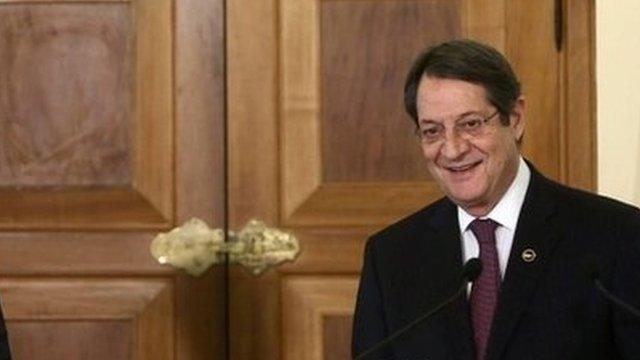EgyptAir hijack: Egypt requests suspect's extradition
- Published
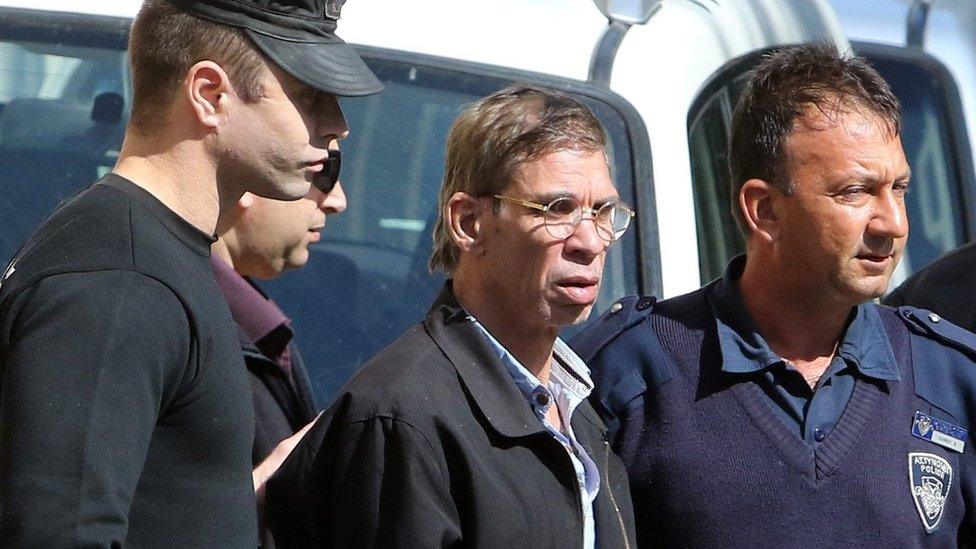
The alleged hijacker demanded to see his ex-wife as soon as the plane landed in Cyprus
Egypt has asked Cyprus to extradite the man accused of hijacking an airliner on Tuesday, Egyptian prosecutors say.
Seif al-Din Mustafa, described by Cypriot officials as being mentally disturbed, used a fake suicide belt to hijack the Egyptair flight and forced it to fly to Larnaca.
Egyptian prosecutors said Mr Mustafa should be handed over under a 1996 bilateral extradition treaty.
He has been remanded in custody in Cyprus for eight days.
Possible charges include air piracy, kidnapping and threatening behaviour.
Mr Mustafa did not speak at his court appearance, but gave a victory sign as he was driven away by police.
The hijacking is believed to have been motivated by a row between Mr Mustafa, 58, and his ex-wife, who lives in Cyprus. Cypriot authorities have said the hijacking was not terrorism-related.
Hijacker jokes divide social media
EgyptAir flight MS181 was carrying 56 passengers from Alexandria to Cairo, along with six crew and a security official, when it was diverted to Cyprus.
EgyptAir Flight MS181 hijacking suspect passes through airport security
During a stand-off lasting more than six hours, almost all passengers and crew were freed unharmed as authorities negotiated with Mr Mustafa.
One person, apparently a crew member, climbed out of a cockpit window, minutes before the suspect walked calmly out of the plane to surrender.
Cypriot Foreign Minister Ioannis Kasoulides said Mr Mustafa had initially asked to speak with his Cypriot ex-wife, who was brought to the airport by police, before making a series of "incoherent" demands.
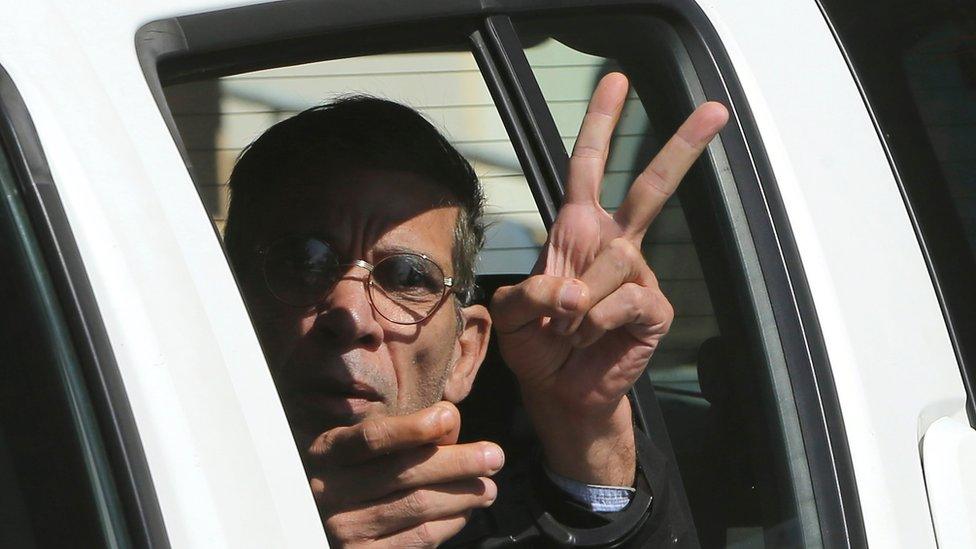
Mustafa giving a V-sign to journalists moments after appearing tired and drawn in court
President Nicos Anastasiades had responded to a reporter's question about whether the hijacker was motivated by romance, by laughing and saying: "Always there is a woman involved."
A photograph showing a British man posing with the hijacker inside the plane has been widely circulated. Ben Innes told the Sun newspaper, external he was trying to get a better look at Mr Mustafa's belt.

Egyptian press: Incident will affect tourism
Describing it as "the easiest and the most foolish hijacking of a plane", private newspaper al-Masry al-Youm recalled the "critical" timing of the incident as Egypt was trying to recover from the downing of a Russian plane over Sinai in October 2015.
State-owned al-Gomhuria wrote that it had "left a scar on Egypt's heart". But it added that "the greatest loss is that tourists will be scared and many countries have delayed their decision to end the ban they imposed on flights to Egypt".
Private al-Youm al-Sabi sees "a blow to tourism in Egypt".
"Lax security at Egyptian airports, either on the ground or on board, tarnishes the reputation of Egyptian airlines and will also impact considerably on tourism in Egypt," echoed liberal opposition newspaper al-Wafd.

Airport security
A statement from Egypt's civil aviation ministry said 26 foreign passengers were on board, including eight Americans, four Britons, four Dutch citizens, two Belgians, two Greeks, a French national, an Italian and a Syrian.
A man was seen fleeing from a cockpit window shortly before the hijacker surrendered
Egyptian authorities said security measures had been "fully implemented" before the flight.
CCTV footage released by the interior ministry shows Mr Mustafa being frisked at two security checks and passing a slim bag through X-ray machines at Alexandria's Borg El Arab airport.
The BBC's Youssef Taha says Egypt has taken steps to improve airport security after Russian Metrojet Flight 9268 was blown up over Sinai last October.
They include an extra $1bn (£690m) a year and a deal with British consultancy Control Risks to review procedures at Cairo, Sharm El-Sheikh and Marsa Alam airports.
Despite this, our correspondent says checks remain inconsistent, with many VIPs and MPs refusing to be searched and airport and airline staff routinely bypassing full security screening.
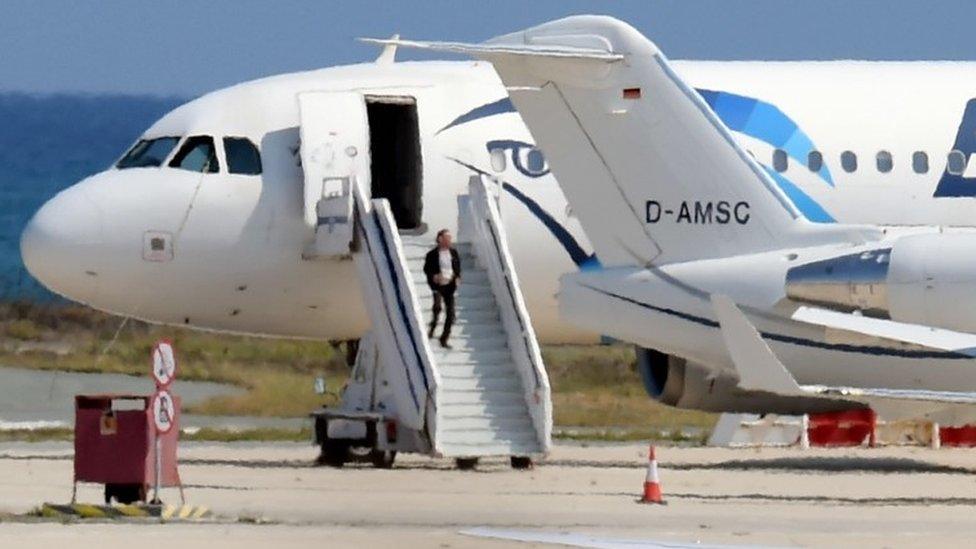
A man believed to be the hijacker leaves the aircraft
- Published29 March 2016
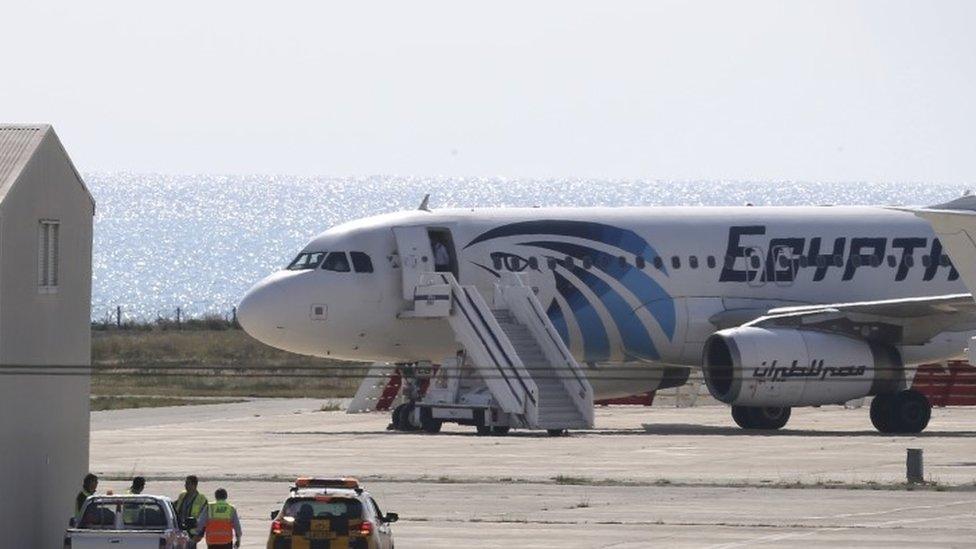
- Published29 March 2016
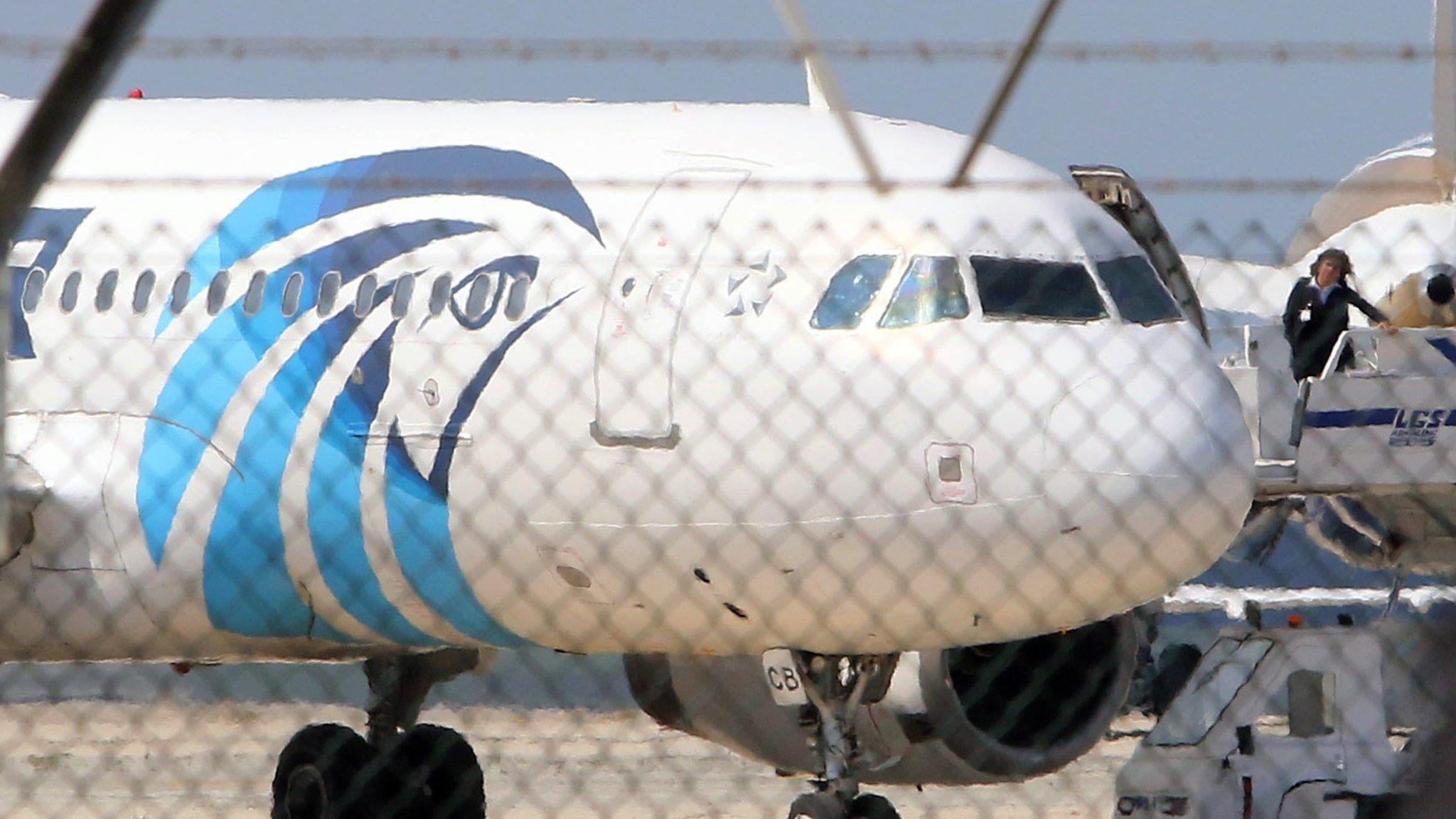
- Published29 March 2016
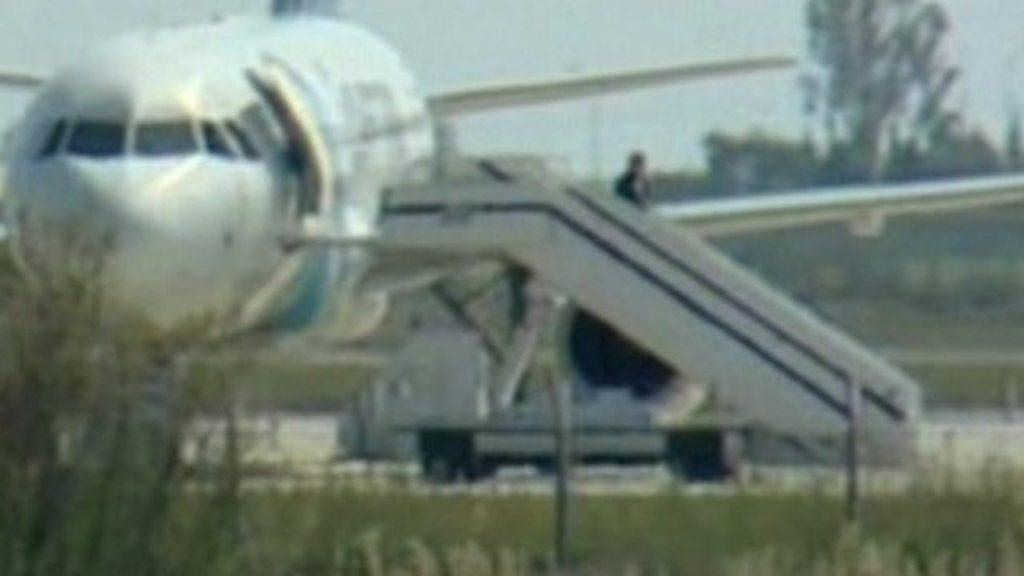
- Published29 March 2016
